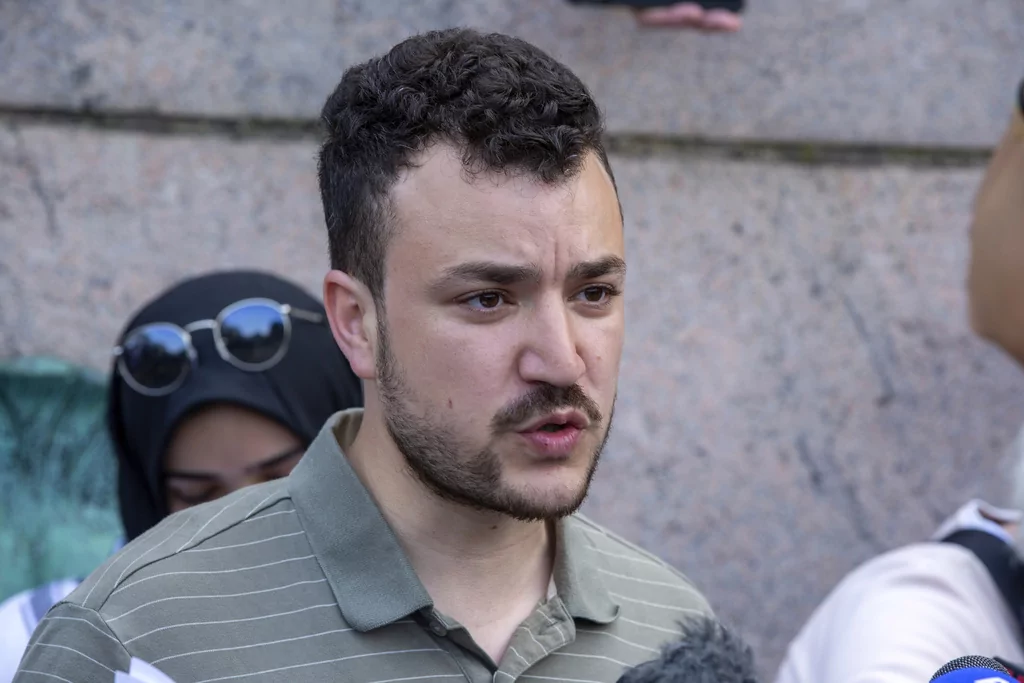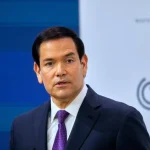

A U.S. immigration judge in Louisiana ruled Friday that President Donald Trump’s administration can move forward with deportation proceedings against Mahmoud Khalil.
The Columbia University graduate student and pro-Palestinian activist’s case has become a flashpoint in the national debate over student protests and immigration policy. Judge James Comans at the LaSalle Immigration Court ruled that Khalil is removable under U.S. immigration law.
Comans cited a recent letter from Secretary of State Marco Rubio, which deemed Khalil’s presence in the United States a threat to foreign policy. The judge said the Department of Homeland Security met its burden of proof.
Khalil, 30, was arrested on March 8 at his Columbia University apartment and transferred to a detention facility in rural Louisiana, where he remains in custody. His attorneys have until April 23 to apply for relief from deportation.
Khalil was born in a Palestinian refugee camp in Syria and holds Algerian citizenship. He became a U.S. lawful permanent resident last year and is married to a U.S. citizen. Despite not being charged with any crimes, the Trump administration has targeted Khalil for removal based on a provision of the Immigration and Nationality Act that allows for deportation if an immigrant is deemed a foreign policy threat.
Rubio’s letter to the immigration court accused Khalil of playing a role in “antisemitic protests and disruptive activities” on campus, which the administration argues create a hostile environment for Jewish students. While the letter acknowledged Khalil had not broken any laws, it asserted that lawful speech and associations can still warrant removal if they endanger U.S. interests abroad.
Khalil’s lawyers argue the case is a blatant violation of First Amendment protections, calling it a politically motivated attack on pro-Palestinian speech. “Rubio’s letter is a sort of tacky, Soviet-style diktat that’s equal parts empty and chilling,” said Baher Azmy, legal director of the Center for Constitutional Rights.
MAHMOUD KHALIL’S LAWYERS SEEK RUBIO TESTIMONY TO EXPAND ON DHS EVIDENCE
Khalil has also filed a federal lawsuit in New Jersey challenging his arrest and transfer to Louisiana, which his attorneys say was designed to isolate him from his legal team and family in New York.
The case is being closely watched as a test of how far the Trump administration is willing to go in using immigration law to police foreign students’ political activity — especially those involved in campus protests over the U.S.’s role in the Israel-Hamas conflict.




